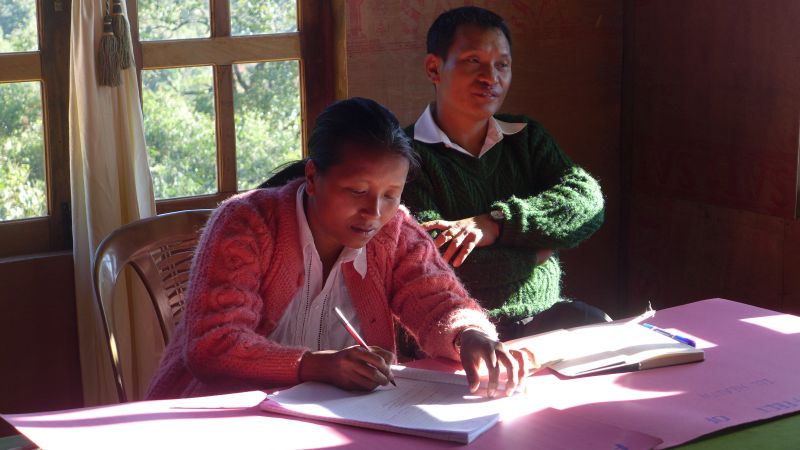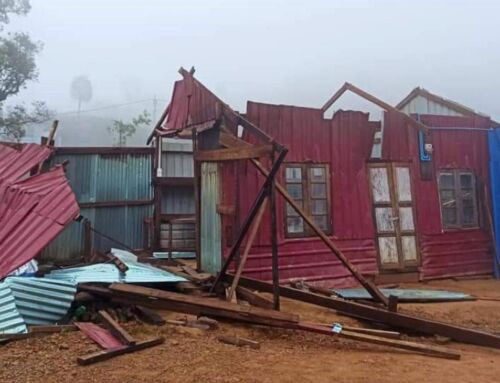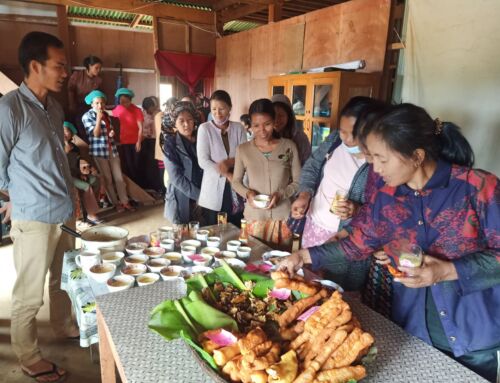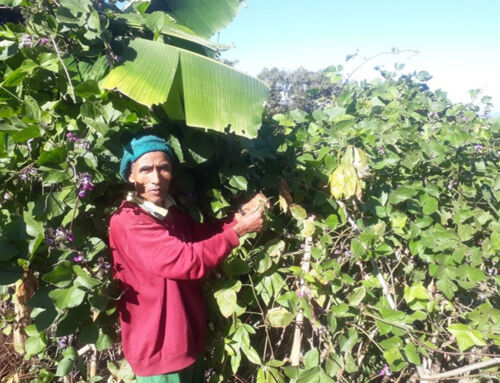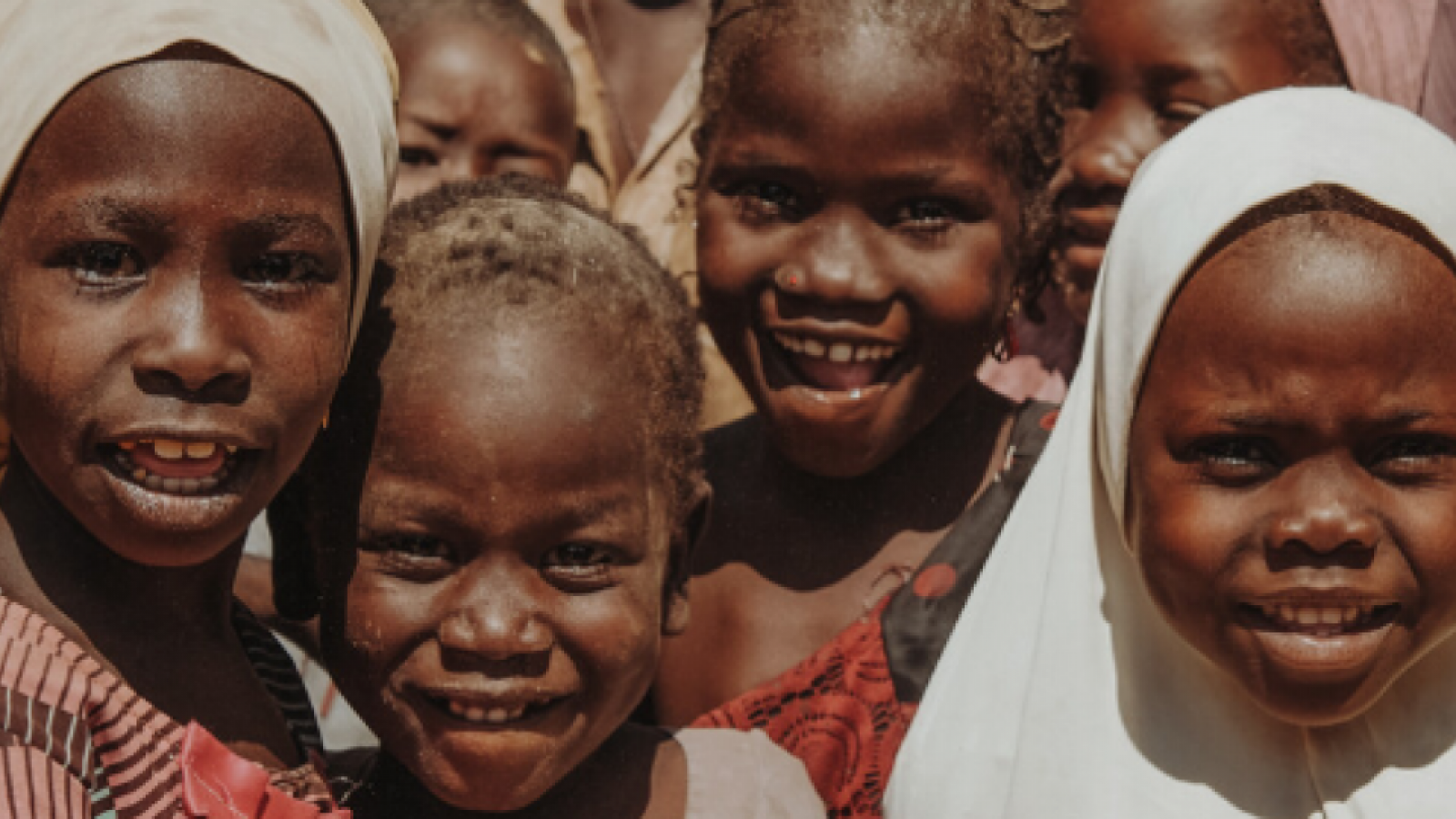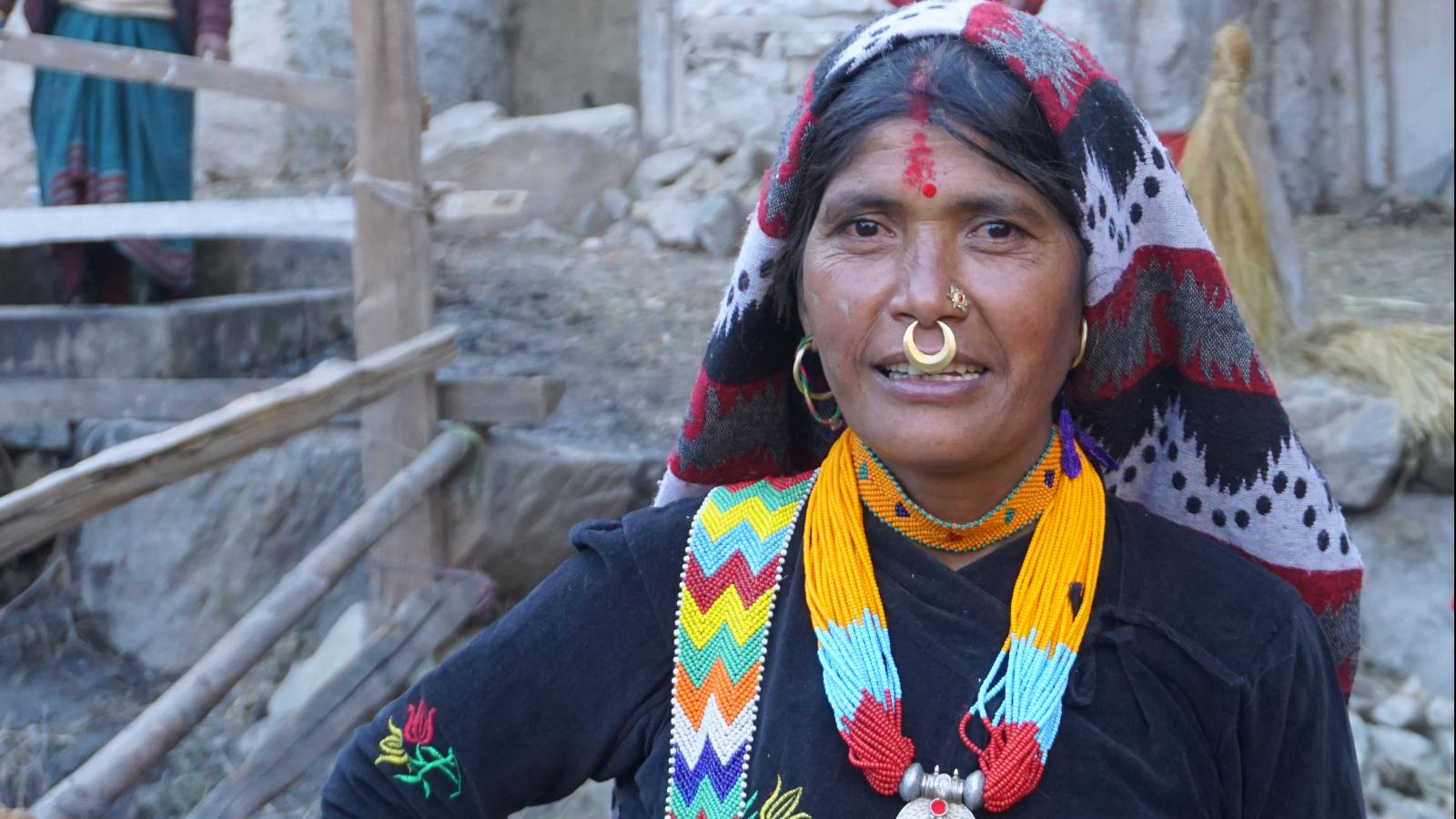Mai Ki and her colleagues from the local organisation Together for Sustainable Development are working to eradicate food shortages among their vulnerable fellow countrymen and -women in Myanmar. Cooperation with Mission East has taught them to work more efficiently.By Kim Wiesener, Communication Manager, September 2017
When Mai Ki needs to attend an important meeting in Myanmar’s largest and most important city, Yangon, she hires a motorcycle taxi in her home village of Lailenpi in the remote Chin State.
With a bit of luck, she can reach the next stop on her route in one day, otherwise she will have to make an overnight stop on the way. Then she continues by bus for 17-18 hours, and boards a larger bus for the final 12-hour leg of her long journey to the big city.
Obviously, Mai Ki does not travel from Lailenpi til Yangon every week, but she may go once a quarter. This is the reality if one lives in Myanmar’s remote and impoverished Chin State and wishes to help one’s people gain a better life. Mai Ki belongs to the Christian Mara people. Through her small organisation, she has cooperated with Mission East since 2013 to bring development to Chin State – through education and food production.
Mutual understanding
When working together, it is important for Mission East and the local organisation to understand and learn from each other, especially when their starting points are so different. Mai Ki readily tells her international colleagues about her people’s transport and communication problems in the hope that they will find their own challenges less overwhelming.
However, she stresses that she has learnt a lot from working together with Mission East. This has benefited her own work and the Mara people as a whole. Mai Ki now heads the local organisation, Together for Sustainable Development, which originates from the Mara Evangelical Church. The organisation started as a grass roots movement, and Mai Ki and her colleagues had to learn many things from scratch.
”A very significant point about our cooperation is Mission East’s commitment to building our capacity. They came and listened to us, heard about who we are and what level we are at, and also visited our community. They taught us office management, to write proposals for donors, to do financial reporting. This gave us a very solid foundation,” Mai Ki says.
Useful visits
She has visited Mission East’s two headquarters in Copenhagen and Brussels and brought a lot of useful knowledge back from there. “I learnt how important it is to keep a healthy relationship between each staff member. I learnt about fire safety. I learnt about the importance of keeping our donor informed about projects. We are accountable to God, our donors, and to the community we serve. I learnt that we are an important link between our local community and Mission East. If we do something wrong, it also affects Mission East. This gives me a lot of impetus to learn. To serve our community better, my colleagues and I have to improve our skills.”
The ultimate goal of this partnership is, obviously, bigger than becoming a more streamlined organisation. With the assistance of Mission East, Mai Ki and Together for Sustainable Development work to secure more and healthier food for the Mara people.
More food on the table in the future
Malnourishment is a big problem in Chin State. In the coming years, a number of villages in the area will improve their capacity to produce food. Mai Ki would like to run an experimental farm. In time, it will produce organic vegetables and not only secure a varied diet for the local population, but also provide it with an income through the sale of vegetables. Organic food production ensures that the soil is managed properly and makes it easier to sell the produce on the market.
It is Mai Ki’s long-term dream that the Mara people will be able to do organic farming on a larger scale, and also foster many gifted students. She would like to see her home region attract international guests to enjoy the fresh air and beautiful nature. Her organisation will contribute to this development. And thanks to the partnership with Mission East, a better future for the Mara people is already on the cards.
—————————————————————————————————————————————————-
Support for food production
Mission East and Together for Sustainable Development have just launched a three-year project that will secure adequate food production in four Mara villages. The project is supported by the Danish government through Civil Society in Development (CISU).

